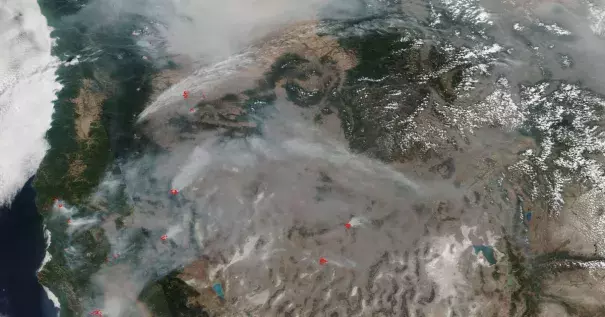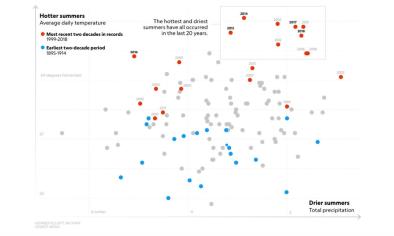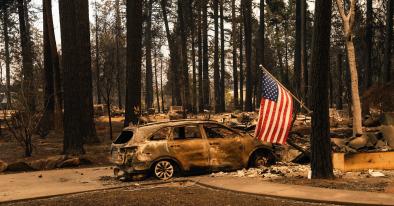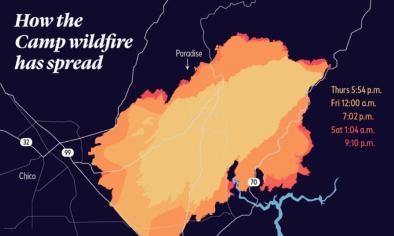Breathing Seattle’s air right now is like smoking 7 cigarettes. Blame wildfires.

Ash and smoke are choking Seattle’s air for the second week in a row, as wildfires smolder in the Cascades and in British Columbia. The air quality in Seattle this week has been worse than in Beijing, one of the world’s most notoriously polluted cities.
As of Wednesday morning, the Air Quality Index in Seattle was at 190, a rating classified as “unhealthy.” In parts of the city, the index rose as high as 220, which is “very unhealthy.” Other parts of Puget Sound, like Port Angeles, Washington — 80 miles from Seattle — saw the AQI rise to 205 this week.
To put it in perspective, an AQI of 150 is roughly equal to smoking seven cigarettes in a day. People breathing air this unhealthy should avoid being outside and exerting themselves, particularly people with heart and lung problems, the elderly, and children.
...
That the region has remained so hot and dry this year, allowing smoke to linger, is highly unusual, Andrew Wineke, a spokesperson for the state Ecology Department’s air quality program, told Q13 Fox. But it also happened last year.
...
Though wildfires throw off particles of all shapes and sizes, the biggest health dangers come from the smallest ones, 2.5 microns or less in diameter. Known as PM2.5, these particles penetrate deep into the airways, causing inflammation, asthma attacks, and cancer.
“Generally, we think that the smaller it is, the more likely it is to make you sick,” Jia Coco Liu, a postdoctoral researcher studying air quality at Johns Hopkins University, told Vox last year. In sufficient quantities, these tiny particles can make the air too dangerous to breathe.
In Seattle, the concentrations on PM2.5 reached 157 milligrams per cubic meter. “When pollution is very high, over 37 [micrograms per cubic meter], we start to see health consequences,” Liu said.
...
And as the smoke from these fires shows, even people far away stand to suffer more as climate change raises average temperatures, drying out trees and increasing the burned area from fires.
Related Content





